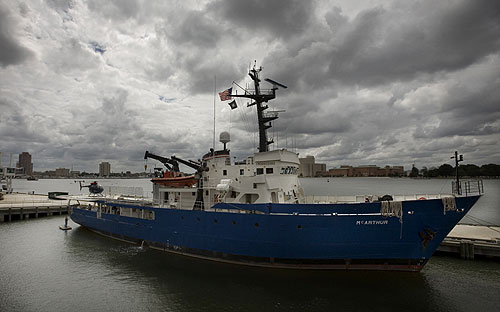Boy, this was a fantastic paper and I highly recommend reading this. The concept has been hit upon by various news organizations and even by some of the companies out there. That idea is to use private security forces to secure the Sudan. In my opinion, this concept has not had the serious review and serious consideration that it needs. It makes sense and it poses the question that if in fact, we have a responsibility to protect (R2P) the innocent that are being killed and terrorized in Darfur, then what are we willing to do to make that happen?
Obviously the African Union sucks, with a paltry 9,000 troops securing a country the size of France. They have not secured it, and people have died because of this lack of security. I also understand the politics behind the US or China not getting directly involved with troops, but really, if we want to stop this disaster, something has to happen. That this negative and hateful view of the private military industry must be cast aside, and they must reconsider our usefulness because there are no real options left out there.
And what really gets me is the disaster that is happening in the Sudan is pure Deja vu. Didn’t we say never again after standing by and not doing a damn thing during the Rwandan Genocide back in the mid-nineties? If nations do not want to contribute forces to stop a blood bath, then really the only option left is to use the private security forces if they want to exercise R2P. –Head Jundi
——————————————————————
Can Private Military Firms Play a Role in Darfur?
Submitted by Editoriar2008
08/18/2008
Emerging at the end of the 20th century amid significant global controversy, private military firms (PMFs) represent a new facet of armed conflict. Although PMFs are relatively new, the concept of for-hire soldiers is certainly not unique; mercenaries have existed since ancient times. As a modern manifestation of the mercenary organization, the public has been extremely critical of these organizations because of their lack of accountability and the ambiguous legality of their work. Recently, the media has been particularly critical of PMFs operating in Iraq and have focused on their immunity from prosecution. The uproar surrounding the recent Blackwater shootings exemplifies the ongoing controversy.
The public’s underlying unease with PMFs is that they wield a power reserved exclusively for the nation-state—the monopoly of force. The surrender of this monopoly has not been through democratic referendums or because of public demands, it has been relinquished by executive branches intent on consolidating power to improve their comparative advantage in military affairs. Despite the controversy, PMFs are now a permanent feature of global military operations. Their influence will only increase because private sector firms are now able to provide and deploy military and security services much more rapidly—and at a significantly reduced cost—than their public sector counterparts.
There are a number of different ways to categorize PMFs. Some academics distinguish between private security contractors and private military firms, but the difference is slight. Deborah Avant, in her book The Market for Force, classifies these organizations by the types of contracts they sign, rather than the organizational structure of the firms themselves. P. W. Singer, in his “tip of the spear” typology, classifies PMFs by the services they provide: militarysupport firms are responsible for supplementary aspects of battle (anything from catering services to helicopter maintenance); military consultants provide advice and training; and military providers supply command-and-control structures, military hardware, and war fighters. This paper will focus on firms, henceforth called PMFs, operating in the third category: the provision of military force.
Since the creation of the first modern PMF in 1989 such organizations have played roles in scores of conflicts. Executive Outcomes (EO) was founded by apartheid-era South African military officers and, while now defunct, once operated throughout the African continent. In Africa alone, there have been countless operations conducted by firms throughout Sierra Leone, Angola, the Democratic Republic of Congo (DRC), Mozambique, Somalia, Liberia, Nigeria, and a host of other nations. Today PMFs are employed globally, although they are particularly prominent in Iraq and Afghanistan.
However, there is one conflict zone in which the lack of PMFs is conspicuous: Darfur. The Darfur conflict is an ongoing humanitarian disaster that has claimed hundreds of thousands of lives, ruined millions more, and, without quick and decisive action, will likely worsen. Negotiations in Libya, which began in October 2007, have been all but abandoned because of Khartoum’s intransigence and the absence of most rebel groups. Naturally, a peace deal is still far off and powerful states—including the United States and China—are hesitant to become immersed in what is becoming a regional conflict. In the meantime, millions of internally and externally displaced people are vulnerable to attack by the Sudanese government, armed militias, and rebel groups.
(more…)
